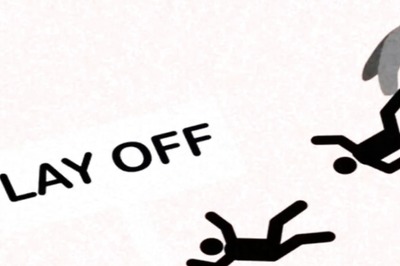
views
X
Trustworthy Source
PubMed Central
Journal archive from the U.S. National Institutes of Health
Go to source
However, you can't always expect to say "yes" every time your friend wants to make plans. It is important, though, to say no in a certain way, and with certain things in mind, if maintaining the friendship is important to you.
Preparing Yourself

Remember, you have a right to say no. Just because someone asks you to do something does not mean you are obligated to do it. If they want to do something with you but you don't want to do something with them, they shouldn't get their way over you; what you want matters, too.

Don't fall for a guilt-trip. Some friends can be pushy and will try to convince you to hang out even after you have said that you can't. Keep firm in your decision by re-iterating your reasons for why you cannot attend. To keep it friendly you can (if applicable) try joking around about the last time you asked your friend to do something and he said no. This will remind him that he has turned down your plans before, too, so he especially shouldn't be trying to guilt you into doing something.

Remind yourself you aren't responsible for your friend's reaction. As long as you offer a sincere apology and do your part to maintain the friendship, you are not responsible for how your friend reacts to your turning down his plans. Ultimately, it is up to him how he decides to respond to your refusal to hang out. Keep that in mind if you are feeling down about your decision to turn him down. Try not to be afraid of how your friend will react. Again, as long as you are doing your part to be a good friend, you don't have to make plans with your friend every time he wants. If he reacts really negatively to your turning him down, perhaps he isn't the best friend to have around. Keeping that in mind should help alleviate your fear of his reaction.

Remember your time is limited. You can't do everything that everyone wants all the time, even for your friends. You have other commitments and responsibilities. Sometimes in life there are things that need to be done that are more important than socializing, such as working hard to become more financially stable, so you shouldn't feel too bad if you can't make plans.
Saying No

Think about compromising. If you don't want to hang out with your friend because they suggested something that you do not want to do or that you don't have time to do (e.g., hanging out the entire weekend), try compromising. You could let your friend know that you want to make plans but can't do the particular plan he suggested. For example, if he wants to spend the whole weekend together but you're only free on Saturday, try suggesting something you both like to do that could be done on a Saturday. Is there a new movie out that you both want to see? That's one idea for a compromise; going to the movies can be fun and only takes a few hours.

Apologize. Tell your friend that you are sorry that you can't make plans this time. Be sure to offer a sincere apology if maintaining the friendship is important to you. To offer a sincere apology, don't breeze past it; take your time saying sorry and give your friend your full attention when you are speaking. Here is an example of how to sincerely apologize to your friend: "I'm really sorry, I'd love to make plans with you but I just really can't this time. Again, sorry about that but let's re-visit this soon so we can work something else out."

Give a reason. If the reason is something you feel comfortable sharing with your friend (i.e., it is not too personal), be sure to let him know why you can't make plans this time. If you do not wish to share the reason, you can use something more vague such as "I'm just really swamped this weekend" or "my life is a bit crazy right now so I can't this weekend" or "thanks for the invite, and sorry, but I just really need some alone time to recuperate this weekend". Whatever you do, if you are going to give a specific excuse, make sure it is legitimate to avoid looking like a liar or a flake. Examples of legitimate excuses include you already having other plans, you being busy with something else in your life, and you being very tired from the week and needing some down time or alone time.

Avoid giving too many excuses. If you are letting your friend know why you can't make plans with him, keep it concise. Don't give a bunch of excuses; this will only make it seem like you are not being genuine. One sincere apology and genuine excuse should be enough. If you have tons of things going on you can just say that.

Be polite. Keep it cordial when saying no, even if you are busy and don't want to have a conversation about hanging out. No one likes to be rejected, even with something small like being turned down by a friend; it can sting a little sometimes. To be polite, follow-up by telling your friend to have a good time if he goes ahead with the plans without you. Ask him to let you know how it goes. You can also try offering a suggestion for another mutual friend he could bring along instead; this will make it clear that you want him to have a good time and care about the friendship, and that you just can't make it this particular time.

Avoid being wishy-washy. Say no firmly and definitely so that it is clear that you cannot do what your friend wants. If you give 'on the fence' answers like "I'll try to be there" or "I'll see; remind me later" when you know you don't want to do, you leave your friend on the hook. Leaving a friend on the hook when you know that you don't want to hang out is selfish; what if he wanted to make other plans but couldn't until you gave your final answer?

Buy yourself time, if you need it. While you shouldn't be wishy-washy if you know you can't or don't want to hang out, if you genuinely aren't sure yet, buy yourself sometime by asking whether you can get back to your friend soon. Be specific on when would be the latest that you would get back to him. Also, to be polite, since you are unsure whether you can hang out, tell your friend that you understand if he needs to make other plans if he doesn't hear back from you soon.

Offer a follow-up plan. If you don't want to make plans based on what he invited you to do, offer a follow-up plan. Get something penciled in for when you are less busy, otherwise your schedule may fill up again and you will have to say no again. For example, if you are busy the weekend he wants to go hiking, ask if you can go hiking next weekend instead. If maintaining the friendship is important to you, be sure to make that clear to your friend.

Try sandwiching your "no" between two "yeses". If your friend does not take your turning his plans down well, you can try to preempt this by placing two "yeses" between your saying no to his plans. For example, if he wants to go hiking with you on the weekend you might say "thanks for inviting me; I'm glad we're friends, we do a lot of fun stuff together, but I can't make it hiking this weekend. I'm definitely into the idea though; let's go a different weekend when I'm less busy, instead?"

Try using empathic assertion. Put yourself in your friend's shoes and think about your friendship and the conversation you are having from his perspective. Let him know that you understand that he wants to have a good time, but that you just can't hang out this time.
Handling Aggressive or Pushy Friends

Get yourself distance. Some friends can be aggressive or pushy about making plans. Perhaps your friend gets angry when you don't do exactly what he says, or tries repeatedly to get you to change your mind. In cases like this it can be best to create some distance between making a decision. For example, if your friend calls you to make plans and is pressuring you, try saying that you need to go but will get back to him later.

Say no through a medium you are most comfortable with. If you find yourself caving more into doing things you don't want to in person, try giving your final answer through a text message or other similar form of communication where your pushy friend can't so effectively be so pushy. If he tries calling right away, you do not need to answer his call; it is acceptable to tell him that you cannot talk on the phone at the moment.

Try writing a script. If you find yourself giving into peer pressure when your friend gets pushy or angry, try writing out what you will say in advance. Write out the reasons why you can't or don't want to make plans, and look them over so that you remember them. This way, if your friend gets pushy, you will be less likely to forget that you really don't want to make plans. When writing your script, think about past conversations with your friend where you gave in. Try to remember how he acted or what he said that made you make plans despite you not wanting to. For example, if in the past he has said that you never say yes to his plans, you could write a script where you re-iterate the last few times that you did hang out together to show him that his claim is not true. By planning with a script, if he tries using the same tactics on you again, you will be ready to defend yourself.

Say no firmly then change topics. If your friend continues to pressure you, try saying that you can't make his plans with some firmness in your voice. After you say no firmly, change the topic of conversation so he gets the hint that you are done with the conversation. For example, if your friend has repeatedly asked you to go out to dinner on the weekend you could say "I already said I really can't go, but thanks for the invite. By the way, did you see [insert some movie here]? What did you think?" Try reminding your friend that people have different personalities and time constraints and that some people like to hang out more than others or do certain things that others don't enjoy. Try letting your friend know that you will make plans whenever you feel that you can, but that when you say no, you mean it, and it isn't OK for him to try to pressure you or to get angry when you say no.

Tell your friend not to be pushy. If nothing else works, you can try telling your friend directly that you feel pressured to do things that you do not want to do and it is putting a strain on your friendship. For example, you might say, "look, I value our friendship but sometimes I feel like you try to force me into doing things I can't (or don't want to) do. This makes me feel like you don't value my perspective and my time constraints. I will absolutely make plans with you when I can, but sometimes I just can't, so it would be great for both of us, I think, if you didn't get angry when I say I can't hang out."




















Comments
0 comment